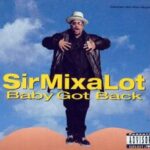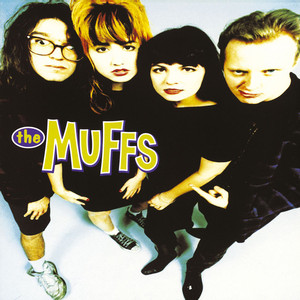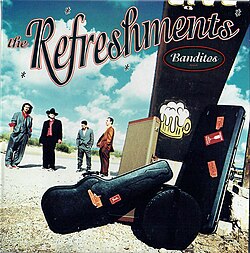 When Sir Mix-a-Lot dropped “Baby Got Back” in 1992, the hip-hop landscape was already booming with innovation and attitude. Gangsta rap was defining the coasts, conscious rap was challenging politics, and pop-rap acts like MC Hammer and Vanilla Ice were ruling radio. But out of Seattle — a city better known for grunge guitars than booming bass — came a song that broke all the rules. With its unforgettable opening line, “Oh my God, Becky, look at her butt!”, “Baby Got Back” didn’t just dominate charts; it redefined beauty standards, ignited cultural conversations about body image, and became one of the most recognizable songs in history.
When Sir Mix-a-Lot dropped “Baby Got Back” in 1992, the hip-hop landscape was already booming with innovation and attitude. Gangsta rap was defining the coasts, conscious rap was challenging politics, and pop-rap acts like MC Hammer and Vanilla Ice were ruling radio. But out of Seattle — a city better known for grunge guitars than booming bass — came a song that broke all the rules. With its unforgettable opening line, “Oh my God, Becky, look at her butt!”, “Baby Got Back” didn’t just dominate charts; it redefined beauty standards, ignited cultural conversations about body image, and became one of the most recognizable songs in history.
Underneath its humor and larger-than-life energy, “Baby Got Back” was more than a novelty track — it was a declaration. It celebrated curvy women in an era obsessed with thinness, challenged mainstream media’s Eurocentric ideals, and did it all while being impossibly catchy. Sir Mix-a-Lot (real name Anthony Ray) used wit and bass-heavy production to turn what could have been a joke into a statement of empowerment. It wasn’t subtle, but it was effective — and decades later, it remains an anthem of self-love and unapologetic confidence.
The Birth of a Bass-Driven Classic
Sir Mix-a-Lot had already built a loyal following in the Pacific Northwest hip-hop scene before “Baby Got Back” exploded. His earlier albums like Seminar (1989) showcased his technical skills and comedic flair, but he was still somewhat of a regional artist. That changed when he released Mack Daddy in 1992, powered by the single that would change everything.
“Baby Got Back” was written and produced by Mix-a-Lot himself. It opens with a parody of a typical Valley Girl conversation — two women mocking another for having a large backside. It’s absurd, funny, and instantly memorable. That setup drops perfectly into one of the most iconic basslines of all time: a deep, rolling groove that shakes speakers and commands attention.
At the time, the production was groundbreaking. Mix-a-Lot built the beat using a combination of Roland TR-808 drum machine thumps, funky synth stabs, and samples that gave the track both grit and bounce. It sounded massive — a sonic embodiment of the confidence he was rapping about. The sound was irresistible, bridging the gap between underground rap and mainstream pop radio.
But it was the lyrics that really made “Baby Got Back” revolutionary.
A Song About More Than Sex
Let’s be clear — “Baby Got Back” is raunchy. There’s no denying that. But beneath the humor and innuendo lies a surprisingly sharp social commentary. Sir Mix-a-Lot wasn’t just talking about physical attraction; he was critiquing how the media — especially fashion magazines and MTV — defined what beauty was supposed to look like.
Lines like “So Cosmo says you’re fat, well I ain’t down with that” directly called out the unrealistic body ideals perpetuated in popular culture. In an age when models like Kate Moss and Cindy Crawford dominated the imagery of desirability, “Baby Got Back” was radical for celebrating women who didn’t fit that mold.
Sir Mix-a-Lot made it clear that his attraction wasn’t just sexual; it was cultural pride. His references to “black” and “brown” beauty were unapologetic — a declaration that women of color deserved to be admired and represented. The song was brash and comedic, yes, but it was also affirming. It said out loud what many people felt privately: that beauty comes in many forms, and curviness wasn’t something to be ashamed of.
Shockwaves Through America
When “Baby Got Back” hit radio in 1992, America didn’t quite know how to react. On one hand, it was undeniably catchy — its beat irresistible, its chorus unforgettable. On the other hand, it was provocative, controversial, and gleefully defiant of social norms.
MTV initially banned the video for being too sexually suggestive. Ironically, that only made it more popular. People clamored to see what was so shocking, and radio DJs couldn’t play it enough. The controversy made it a cultural flashpoint.
By July of 1992, “Baby Got Back” had climbed to No. 1 on the Billboard Hot 100, where it stayed for five straight weeks. It sold millions of copies, became one of the best-selling singles of the decade, and won Sir Mix-a-Lot a Grammy Award for Best Rap Solo Performance.
The video — a mix of humor, fantasy, and cheeky (literally) choreography — became iconic. Set against bright colors and oversized props, it featured women of all shapes and shades, dancing with confidence while Mix-a-Lot played the charismatic ringmaster. It wasn’t just sexy; it was celebratory.
The Humor That Made It Work
Part of what makes “Baby Got Back” so enduring is its sense of humor. Sir Mix-a-Lot knew exactly what he was doing. The song isn’t self-serious — it’s fun, self-aware, and packed with quotable moments. His delivery walks a perfect line between swagger and satire.
Take a line like “My anaconda don’t want none unless you got buns, hon.” It’s ridiculous — but it’s also brilliantly rhythmic. Mix-a-Lot’s flow is playful but precise, and his timing makes the jokes land like punchlines. Every verse builds momentum, leading to that explosive chorus that everyone knows how to shout at the top of their lungs.
That humor was key to its success. Without it, the song could have come off as objectifying or crude. But Mix-a-Lot’s personality made it feel celebratory instead. He wasn’t mocking — he was reveling. The exaggerated tone helped audiences understand that he was poking fun at society’s hang-ups, not at the women he was praising.
The Cultural Ripple Effect
Beyond its chart success, “Baby Got Back” left a permanent mark on popular culture. The song’s influence can be heard and seen everywhere — from hip-hop and pop to fashion, television, and internet memes.
It paved the way for later artists to openly celebrate different body types and redefine sex appeal. When Beyoncé, Nicki Minaj, Lizzo, and Megan Thee Stallion rap about loving their curves, they’re walking the path Sir Mix-a-Lot helped clear. “Baby Got Back” was one of the first mainstream hits to make the phrase “big butt” not just acceptable but desirable.
The song has also had an extraordinary afterlife in pop culture references. It’s been featured in everything from Friends and Shrek to South Park and Family Guy. It’s the kind of song everyone knows, even if they don’t know they know it. You can play it at weddings, clubs, or sporting events, and the reaction is universal — people laugh, dance, and sing along.
In 2014, Nicki Minaj famously sampled the song for her smash hit “Anaconda,” directly interpolating its most famous line. That track, which itself topped charts and went viral, introduced “Baby Got Back” to a new generation and proved its staying power. Sir Mix-a-Lot publicly supported Minaj’s version, saying he loved that she “brought the message full circle.”
Behind the Man and the Message
Anthony Ray, a.k.a. Sir Mix-a-Lot, wasn’t a one-hit wonder — though “Baby Got Back” was his biggest moment. He was one of the earliest rappers to build his career outside of traditional music industry hubs, proving that hip-hop could thrive anywhere.
Born and raised in Seattle, Mix-a-Lot was a tech-savvy innovator long before it was cool. He ran his own label, created his own beats, and managed his own business affairs. His independent mindset was crucial to his success — he didn’t need New York or Los Angeles to validate his music.
With “Baby Got Back,” he combined that entrepreneurial spirit with sharp social observation. He once said that he wrote the song because he was tired of watching television and seeing only one kind of woman being portrayed as beautiful. “I wanted to say something that wasn’t being said,” he recalled. “I wanted to say that beauty isn’t just one thing.”
That sentiment helped transform the song from a gimmick into a cultural statement. Sure, it was funny and wild, but it also said something real — something millions of listeners connected with.
From Scandal to Celebration
Looking back, it’s amazing how “Baby Got Back” has aged — not as a relic of ‘90s novelty rap, but as a timeless party anthem that still feels relevant. What was once seen as scandalous now feels progressive. The same themes that raised eyebrows in 1992 — body positivity, representation, self-acceptance — are now central to mainstream pop culture.
The song’s staying power also speaks to Sir Mix-a-Lot’s craftsmanship. Its production still slaps. Its hook still sticks. And its message — “be proud of who you are” — still resonates.
Even as hip-hop evolved into more complex and experimental forms, “Baby Got Back” remained a unifying force. It’s one of those rare tracks that transcends genre boundaries. Everyone from metalheads to pop fans to country listeners can recognize that bassline and grin. It’s fun, it’s freeing, and it’s impossible to ignore.
The Legacy of a Booty Anthem
More than thirty years later, “Baby Got Back” continues to be one of the most recognizable and quoted songs in music history. It’s not just nostalgia keeping it alive — it’s the universal joy of it. The song doesn’t just make people laugh or dance; it makes them feel seen.
It helped spark early conversations about body diversity, and though it did so in a humorous way, it paved the way for broader acceptance of different body types in media. In many ways, “Baby Got Back” was the start of a movement that’s still evolving — one that celebrates difference rather than conformity.
And perhaps the greatest testament to its impact is that it’s still everywhere. From viral TikToks to gym playlists to retro nightclubs, the track refuses to die. It’s not just a relic of the ‘90s — it’s a permanent part of pop culture’s DNA.
Conclusion: The Song That Shook the World (and Its Hips)
“Baby Got Back” is more than just a rap classic — it’s a cultural earthquake that reshaped how people think about beauty, confidence, and self-expression. When Sir Mix-a-Lot released it in 1992, he wasn’t just chasing a hit; he was making a statement that still echoes today.
It’s funny, bold, and outrageous, but it’s also deeply human. It celebrates what makes people different, and it does so with basslines that make you move whether you want to or not. In a world still struggling with body image and unrealistic ideals, “Baby Got Back” remains as relevant — and as joyously defiant — as ever.
Three decades later, that famous opening still triggers an instant reaction:
“Oh my God, Becky, look at her butt…”
And somewhere, a crowd of people smiles, laughs, and dances — because Sir Mix-a-Lot’s anthem of confidence and celebration is still rocking the world like it’s 1992 all over again.


